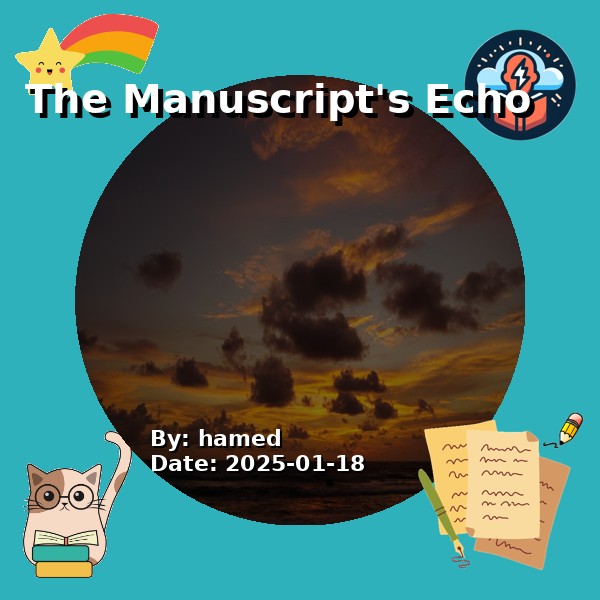Eliot sat cross-legged in the dimly lit restoration lab, the smell of old paper and ink filling the air. The manuscript before him, a delicate, centuries-old text, had become his obsession for the past month. Each stroke of his brush, every gentle touch of the scalpel, was an act of reverence to the scribe who had painstakingly written it so long ago. The ink had faded, the parchment was fragile, but the words—those had stood the test of time.
Today, though, Eliot wasn’t just restoring the manuscript. He was meditating, trying to connect with the spirit of the work, to understand the intention behind the faded words. He closed his eyes, letting the steady rhythm of his breath guide him deeper into the calm of his mind.
As he exhaled, something shifted. The edges of the room began to blur, the hum of fluorescent lights fading into an ethereal silence. Eliot’s body felt strangely distant, as if he were no longer tethered to his own senses. A feeling of weightlessness enveloped him, followed by a sudden clarity.
A whispering voice filled his thoughts.
“You come seeking answers in a place forgotten, yet the answer lies within you. We are bound by ink and page, separated by time, but not by spirit.”
Eliot’s heart skipped. The voice, the words—it was as if someone else was speaking through him. He tried to focus, but his mind raced, his hands trembling. He could still feel the manuscript under his fingertips, yet it was as if he was no longer in the lab at all.
He opened his eyes—and saw nothing. Instead, the world around him was replaced by the flickering image of a dimly lit scriptorium. The low murmur of a fire crackled in the background. It was a scene from the past, but it felt alive. He could smell the wax from the candles, hear the faint shuffle of feet across stone floors.
A figure appeared before him: a man in his mid-thirties, his face solemn but focused, hunched over a parchment. The scribe.
The man’s hand moved across the page, his quill dipping into ink as he wrote, each word slow and deliberate. Eliot felt an overwhelming sense of connection to him, as if they were one. The scribe’s breath, his thoughts, his struggles—they were now Eliot’s.
“I write the words of my soul,” the scribe said, the voice in Eliot’s mind now distinctly his own. “They will outlive me, carried by the ink that flows, by the hands that touch these pages. And yet, will they remember me? Will they know the fire that burned in my chest as I wrote?”
Eliot was no longer aware of his own body. He was in the scribe’s. His fingers were stained with ink, his back aching from long hours hunched over the work. He felt the scribe’s hunger, his yearning to leave something behind, something that would transcend his own fleeting existence.
Eliot understood. The scribe had poured his essence into these pages, not just to document history, but to live beyond his time, to have his thoughts breathe long after his bones had turned to dust. Eliot felt the weight of that desire, that desperation to be remembered.
The vision shifted again. The scribe looked up, his eyes meeting Eliot’s with a knowing gaze.
“You are the keeper of this flame now,” the scribe whispered. “What will you do with it?”
A jolt of clarity struck Eliot like a lightning bolt. He realized what was happening—he was not just restoring a manuscript. He was the bridge between past and present, between the soul of a long-dead scribe and the hands of a modern artist. This manuscript had not just lived through centuries; it had been waiting for him. Waiting for someone who could understand the depth of its creation.
Suddenly, the vision faded, and Eliot found himself back in the lab, sitting in front of the manuscript. His hands were still resting on the page, his fingers gently tracing the ancient ink. His heart was pounding, but his mind was at peace. The world outside the lab had returned, but something inside him had changed.
He realized the manuscript was more than just words. It was a soul. The scribe’s soul. And he had shared it—if only for a moment.
With a steady hand, Eliot picked up his brush, ready to continue his work. But now, each stroke felt different, as if he were writing not just with ink, but with the essence of time itself.
